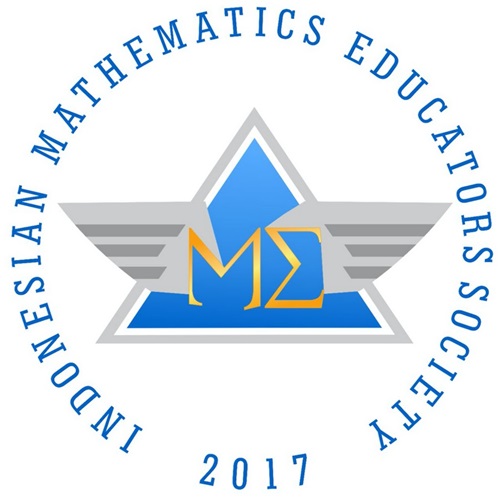Improving Students' Mathematical Problem Solving Ability through Metacognitive Guidance Approach
DOI:
https://doi.org/10.22437/edumatica.v10i2.10494Keywords:
metacognitive guidance, mathematical problem solvingAbstract
Mathematical problem solving abilities (KPMM) are important for junior high school students. The Metacognitive Guidance (MG) approach can be an alternative to improve KPPM. The method used in this research is a quasi-experimental design with a nonequivalent control group design. The population in this study were all students of class VIII SMP Negeri 1 Bandung. Then two classes were taken using purposive sampling technique as the sample. The instrument used was the KPMM test. The results showed that there was a significant increase in the mathematical problem solving abilities of students who took the MG approach learning compared to students who took conventional learning. Then based on the students' initial mathematical abilities, the results showed that at the initial high and moderate mathematical problem solving abilities of students who took the MG approach learning was better than students who took conventional learning, whereas in students the initial mathematical abilities were low there was no difference in increasing problem solving abilities mathematical significance who follow the MG approach learning compared with students who take conventional learning.
Downloads
References
Adiputra, Y. (2015). Analisis Proses Berpikir Siswa dalam Pemecahan Masalah Matematis dan Efektifitas Strategi Abduktif-Deduktif Untuk Mengatasi Kesulitannya (Doctoral dissertation, Universitas Pendidikan Indonesia).
BNSP. (2006). Stander Isi untuk Satuan dasar dan Menengah: Jakarta. tidak diterbitkan
Dahar, R. (1988). Teori-Teori Belajar. Jakarta: Erlangga.
Ge, X., & Land, S. M. (2003). Scaffolding students’ problem-solving processes in an ill-structured task using question prompts and peer interactions. Educational technology research and development, 51(1), 21-38..
Hanun, F. (2010). Pengaruh Metode Pembelajaran dan Kemampuan Awal Terhadap Hasil Belajar Matematika (Studi Eksperimen di MAN 3 Jakarta). Widyariset, 13(1), 123-134.
Ionas, I. G., Cernusca, D., & Collier, H. L. (2012). Prior Knowledge Influence on Self-Explanation Effectiveness when Solving Problems: An Exploratory Study in Science Learning. International Journal of Teaching and Learning in Higher Education, 24(3), 349-358.
Jacob, C. (2003). Konstruktivisme & Metakognitif. Bandung: Universitas Pendidikan Indonesia.
Kemendikbud. (2013). Lampiran Permendikbud no.65 tahun 2013 tentang Standar Proses Pendidikan Dasar dan Menengah. [Online]. Tersedia: http://124.81.93.52/files/03.%20B.%20Salinan%20Lampiran%20Permendikbud%20No.%2065%20th%202013%20%20ttg%20Standar%20Proses.pdf.
Kemendikbud. (2013). Lampiran Permendikbud no.68 tahun 2013 tentang Kerangka Dasar dan Struktur Kurikulum Sekolah Menengah Pertama/Madrasah Tsanawiyah. [Online]. Tersedia: http://www.ikapidkijakarta.com/ikapiblog/wp-content/uploads/2013/08/06.-B.-Salinan-Lampiran-Permendikbud-No.-68-th-2013-ttg-Kurikulum-SMP-MTs.pdf.
King, A. (1991). Effects of training in strategic questioning on children's problem-solving performance. Journal of Educational Psychology, 83(3), 307.
Kilpatrick, J., Swafford, J., & Findell, B. (2001). Adding it up: Helping children learn mathematics (Vol. 2101). National research council (Ed.). Washington, DC: National Academy Press.
Kramarski, B., & Mevarech, Z. R. (2003). Enhancing mathematical reasoning in the classroom: The effects of cooperative learning and metacognitive training. American Educational Research Journal, 40(1), 281-310.
Kramarski, B., & Mizrachi, N. (2004). Enhancing Mathematical Literacy with the Use of Metacognitive Guidance in Forum Discussion. International Group for the Psychology of Mathematics Education.
Multahadah, C. (2015). Penerapan teknik Metacognitive Scaffolding dengan pendekatan Saintifik untuk meningkatkan kemampuan pemecahan masalah matematis dan motivasi berprestasi siswa SMA (Doctoral dissertation, Universitas Pendidikan Indonesia).
Murni, A. (2013). Peningkatan Kemampuan Pemecahan Masalah Dan Representasi Matematis Siswa SMP Melalui Pembelajaran Metakognitif Berbasis Soft Skills (Doctoral dissertation, Universitas Pendidikan Indonesia).
NCTM. (2000). Principle and strandars for school mathematics. United States: NCTM.
Polya, G. (1971). How to solve it: a new aspect of mathematical method Mathematical method. Princeton University Press.
Praptiwi, P., & Handhika, J. (2012). Efektivitas metode kooperatif tipe Gi dan Stad ditinjau dari kemampuan awal. Jurnal Penelitian Pembelajaran Fisika, 3(1).
Roshenshine, B. & Meister, C. (1993). The Use of Scaffolds for Teaching Higher Level Cognitive Strategier. In Woolfolk. A.K. (Ed). Reading and Cases in Eduactional Psychology, 5th ed. Boston: Allyn and Bacon
Ruseffendi, E. T. (2005). Dasar-dasar penelitian pendidikan dan bidang non-eksakta lainnya. Bandung: Tarsito.
Sari, S. D. C. (2015). Pengaruh POGIL (Process Oriented Guided Inquiry Learning) Disertai Mind Mappingdan Kemampuan Awal terhadap Hasil Belajardan Keterampilan Proses Sains Siswa. DISERTASI dan TESIS Program Pascasarjana UM.
Soedjadi, R. (2000). Kiat Pendidikan Matematika di Indonesia (Konstatasi Keadaan Masa Kini Menuju Harapan Masa Depan). Direktorat Jenderal Pendidikan Tinggi Departemen Pendidikan Nasional.
Syahbana, A. (2012). Peningkatan kemampuan berpikir kritis matematis siswa smp melalui pendekatan contextual teaching and learning. Edumatica: Jurnal Pendidikan Matematika.
Vygotsky, L. S. (1980). Mind in society: The development of higher psychological processes. Harvard university press.
Downloads
Published
How to Cite
Issue
Section
License
Copyright (c) 2020 Muhamad Zulfikar Mansyur, Aed Sunendar

This work is licensed under a Creative Commons Attribution-NonCommercial-ShareAlike 4.0 International License.







